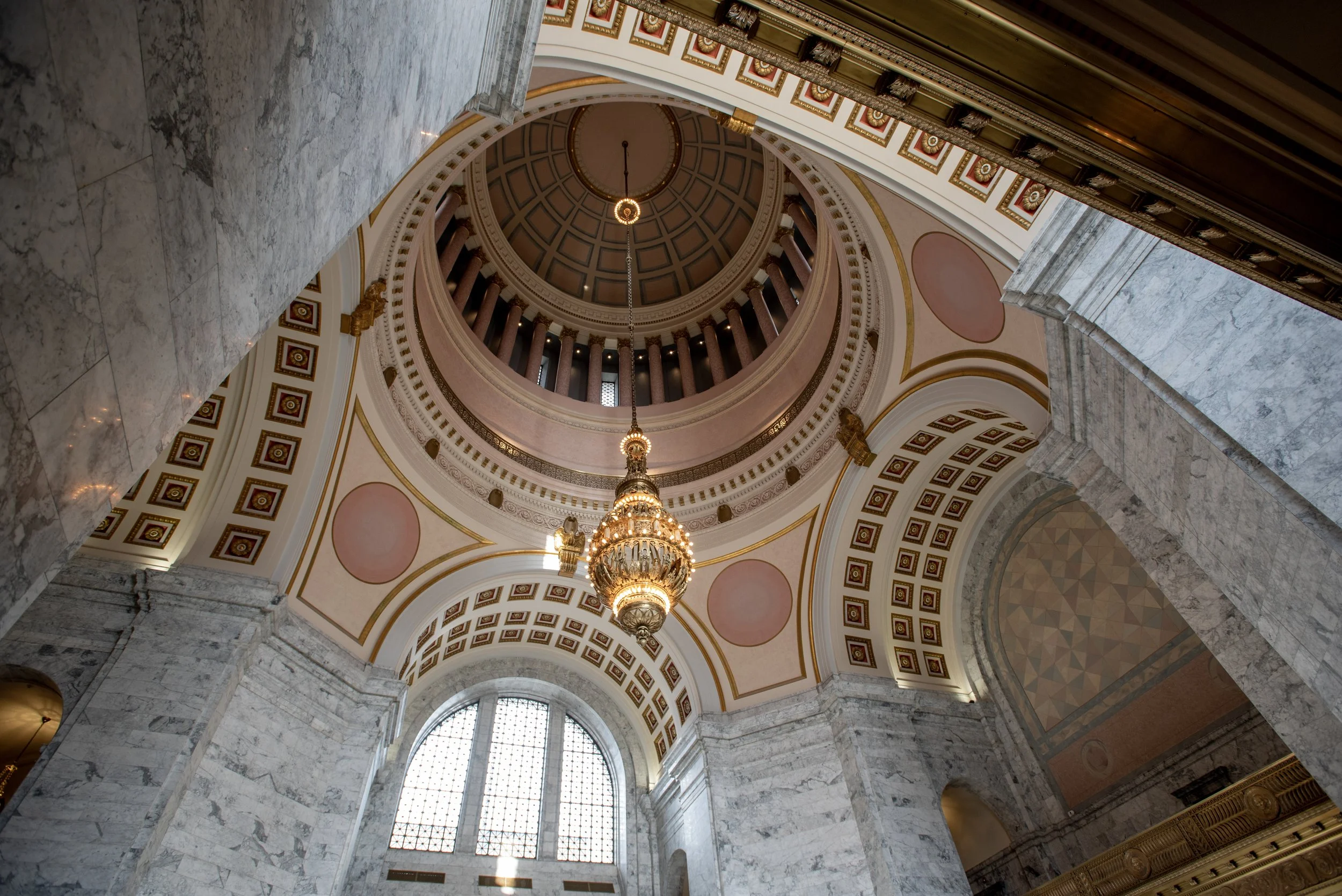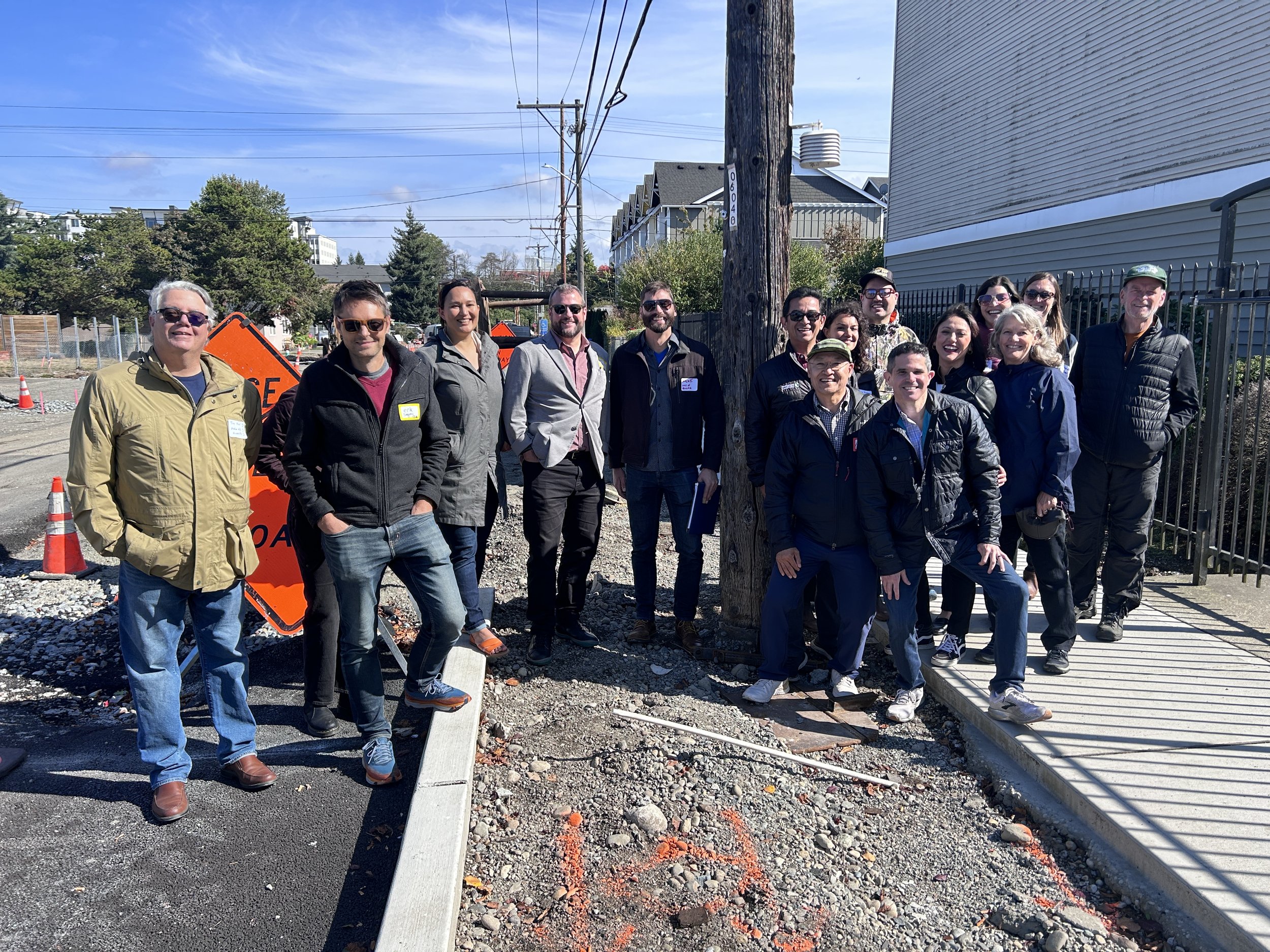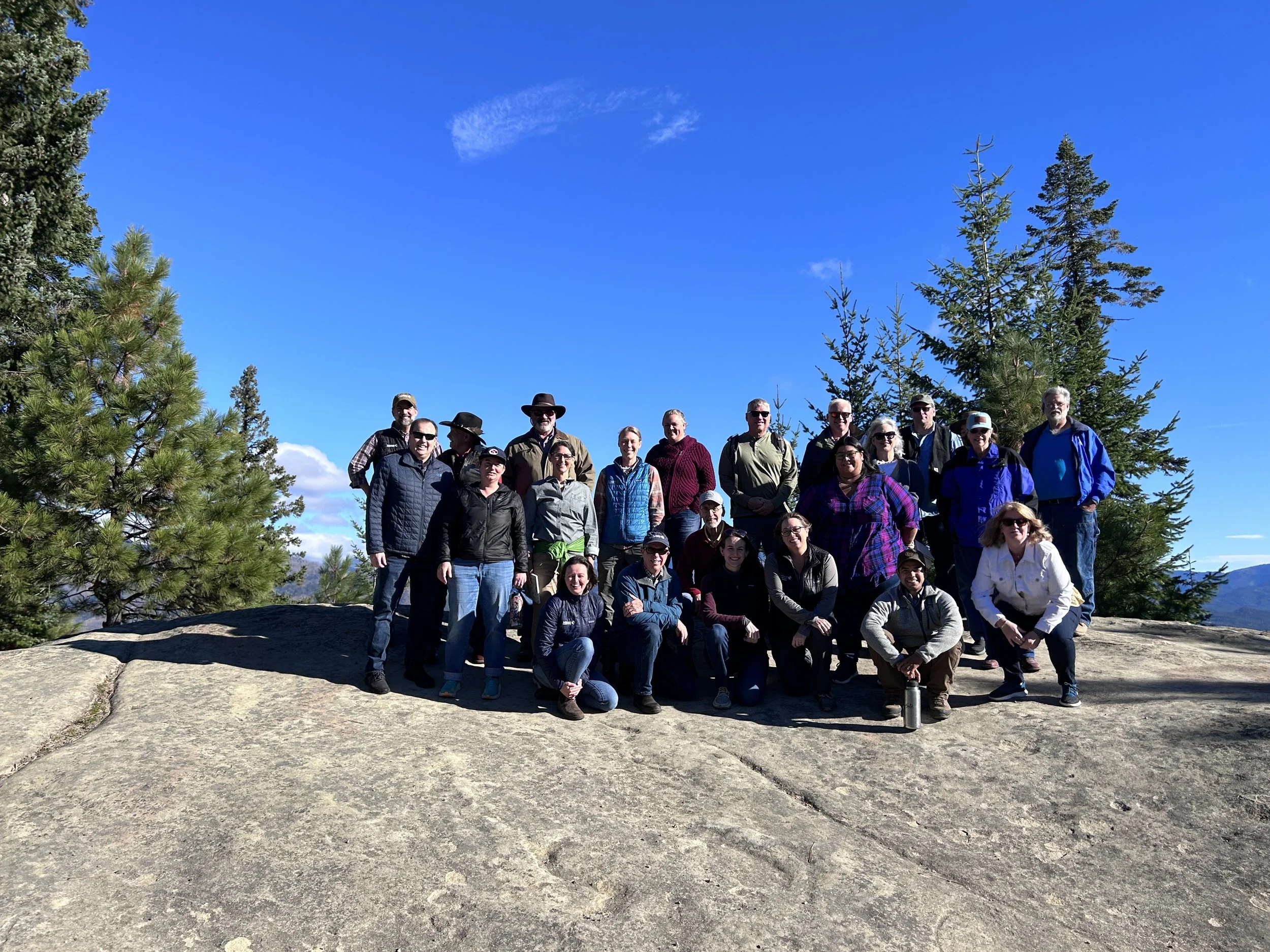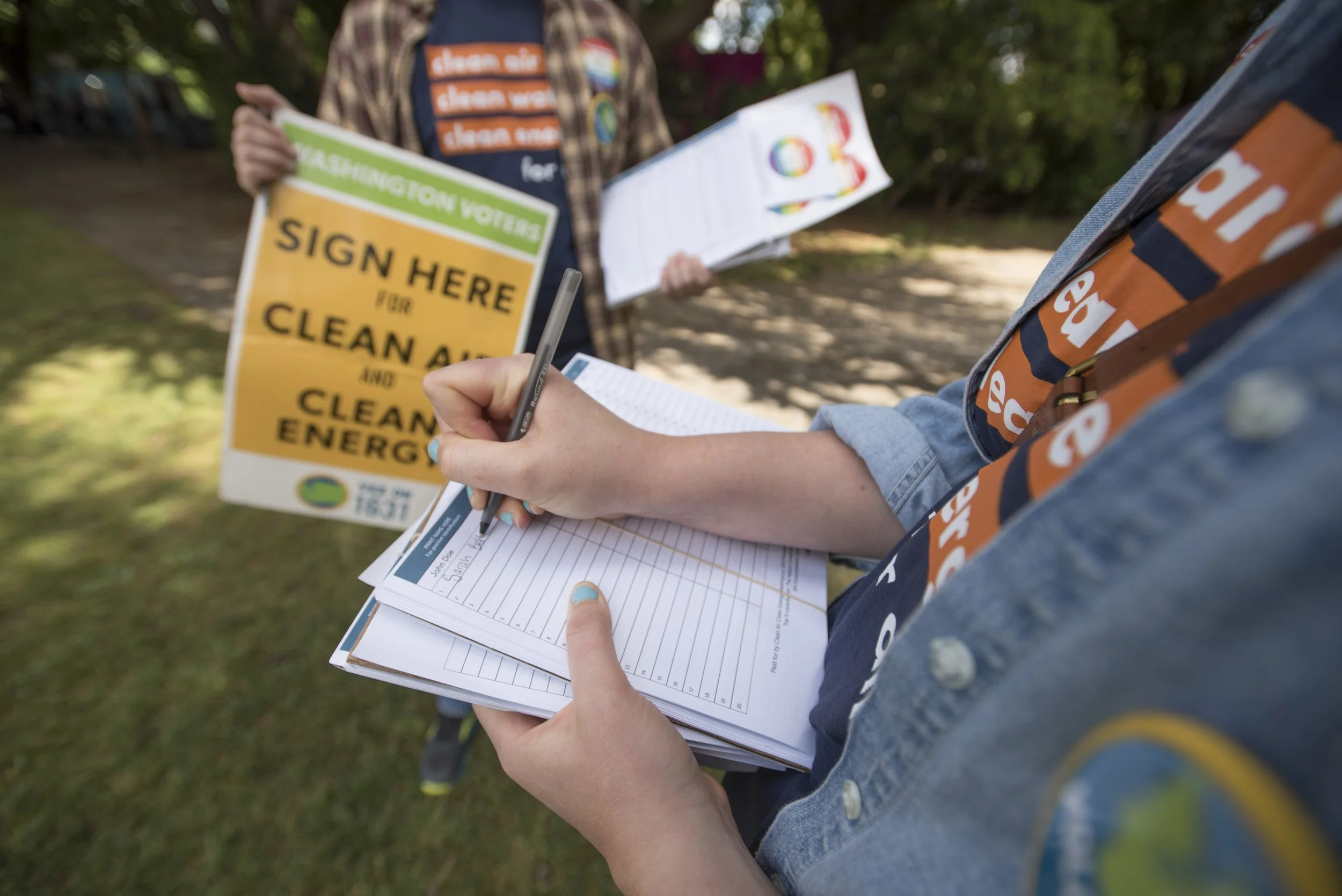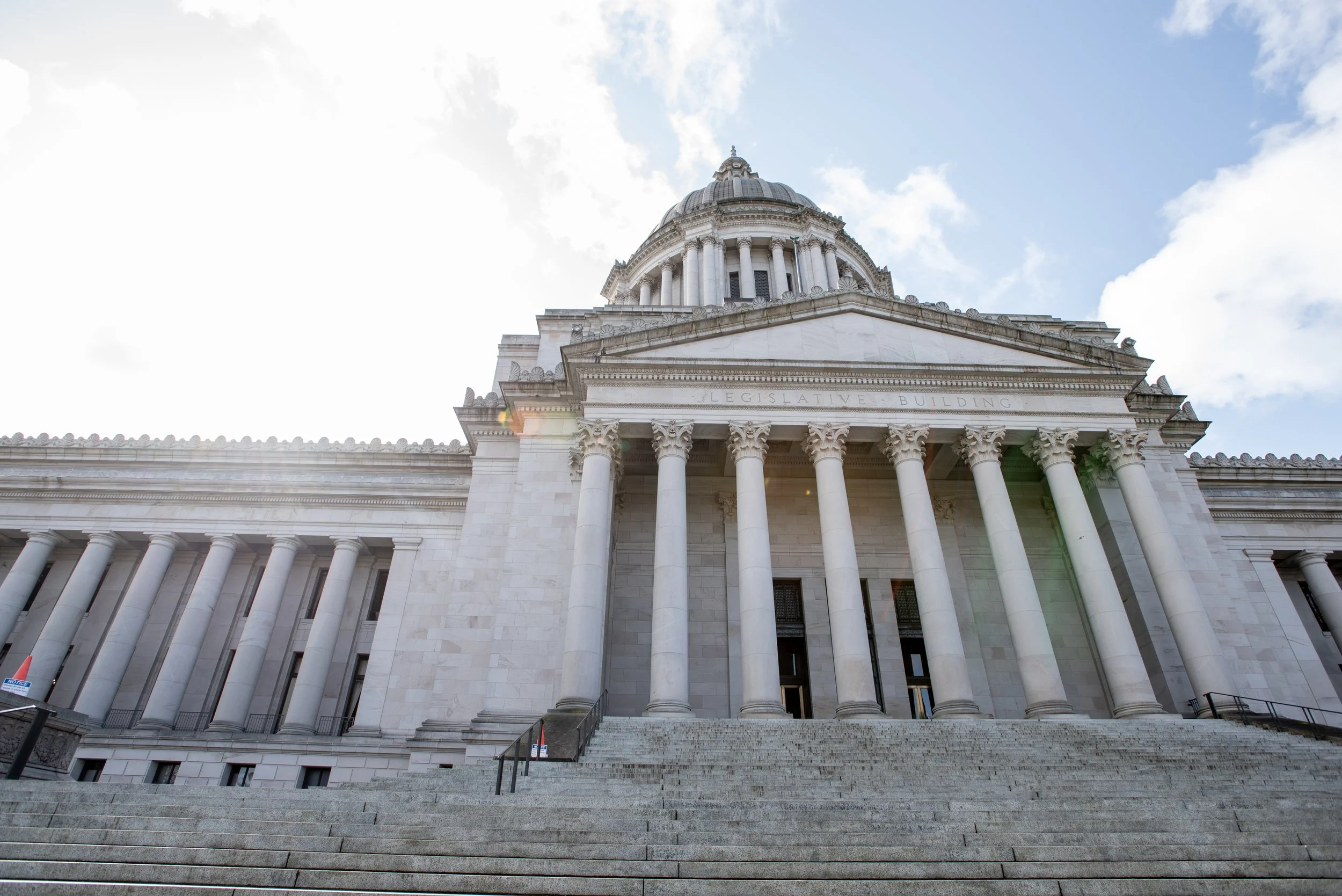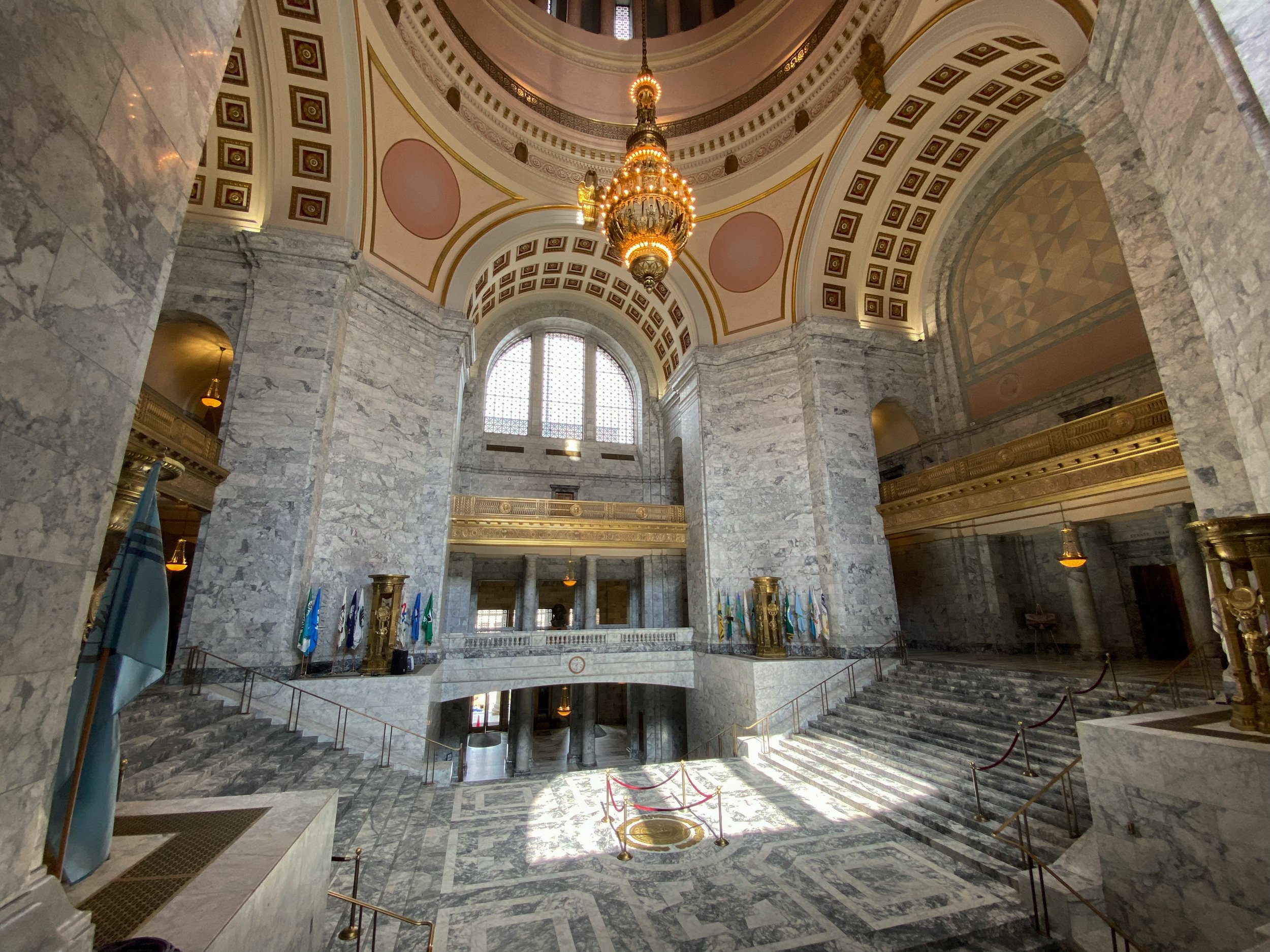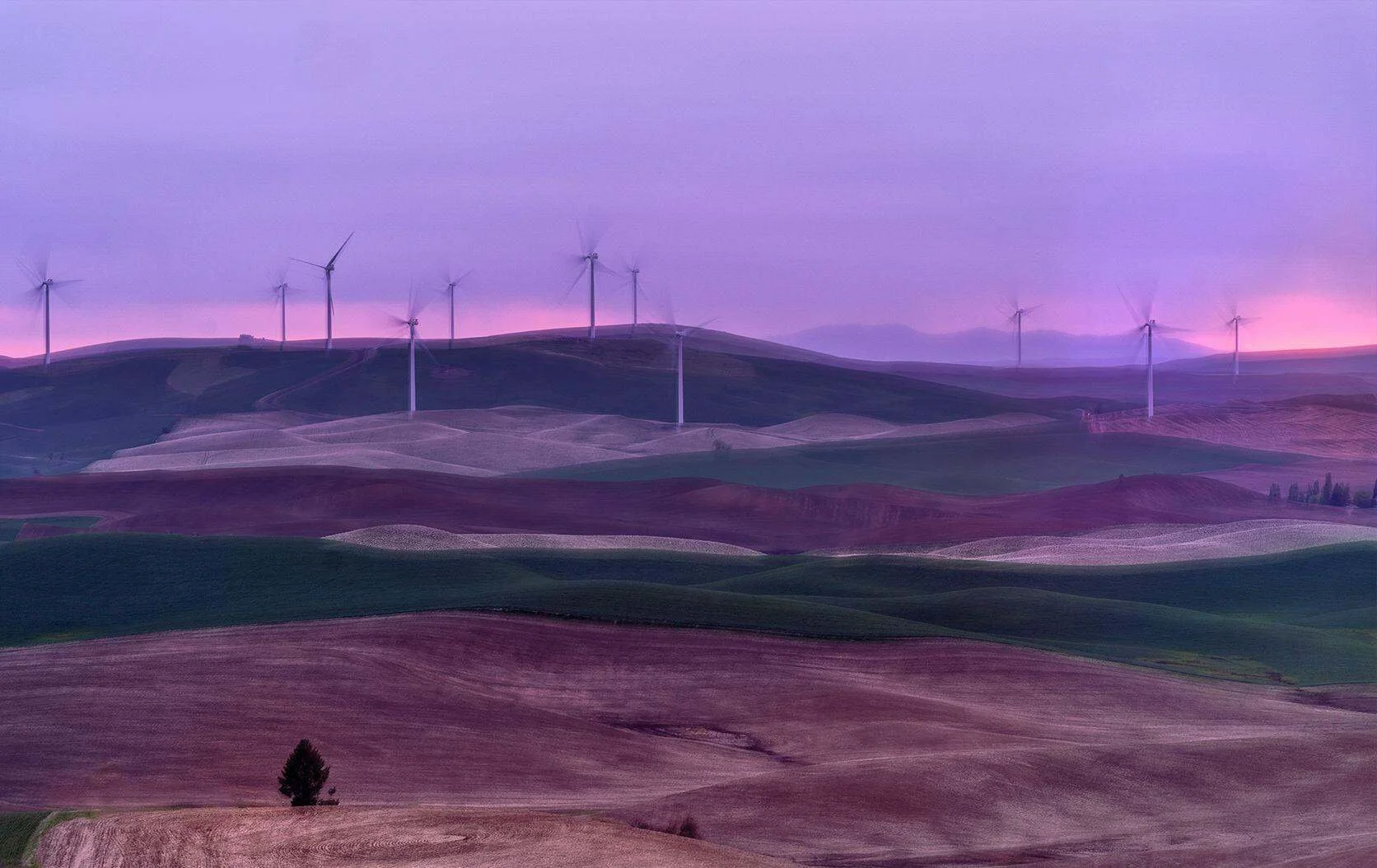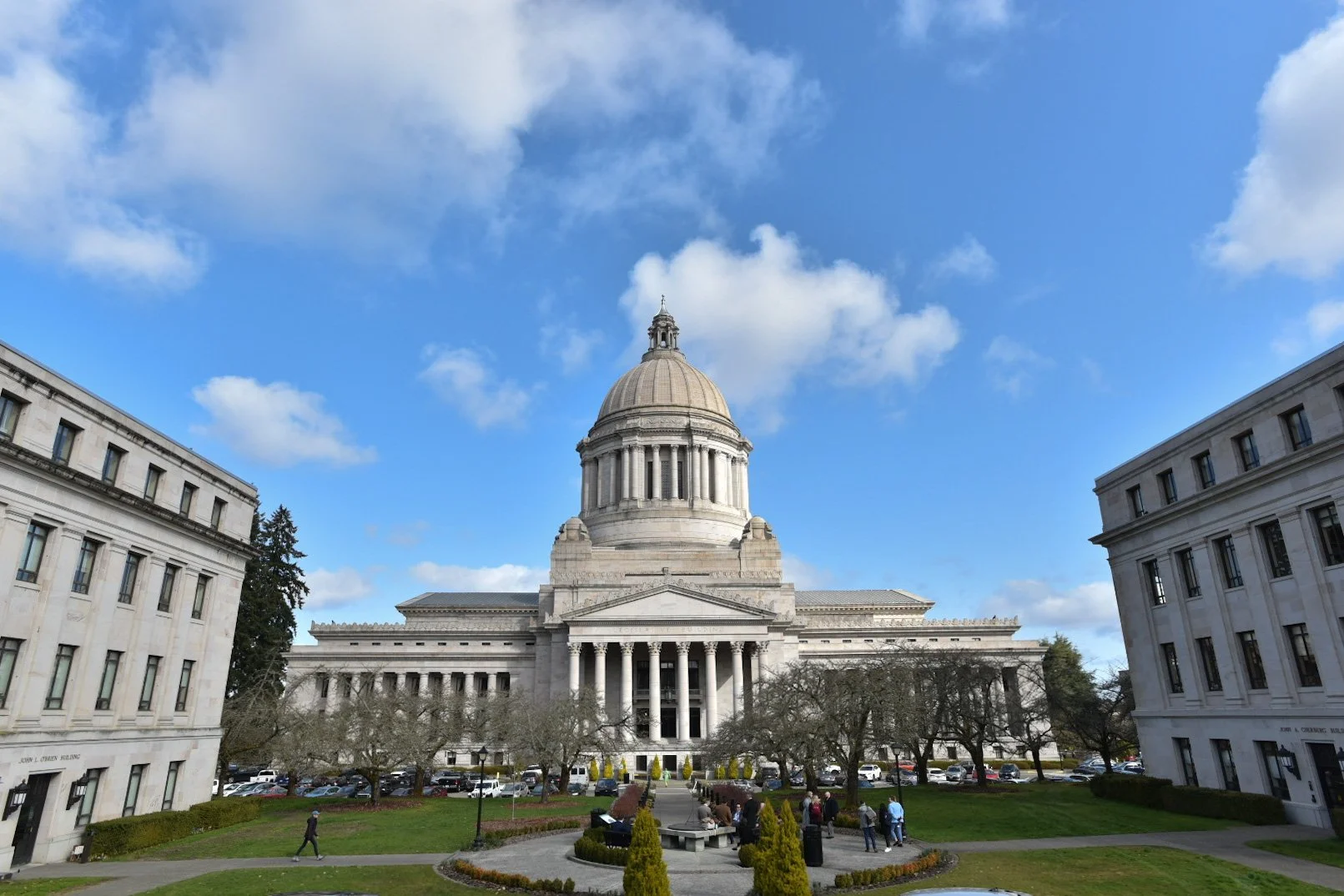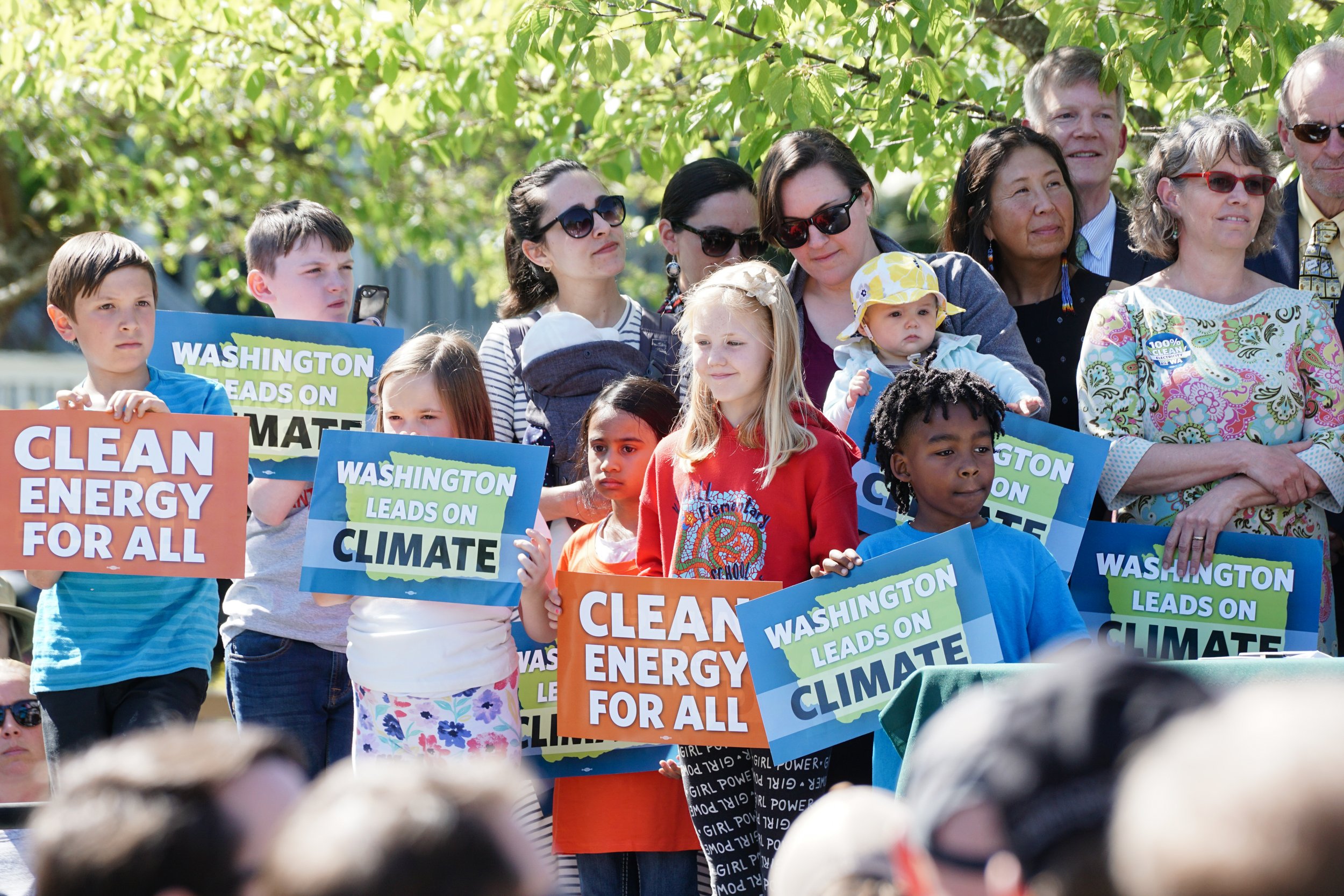Read more about our policy priorities
Many of our top policy priorities also need to be written into these draft budgets. Get a refresher on our bill priorities here.
Passing a budget is one of the most important roles the State Legislature plays, as it determines how policies will be implemented and reflects what we value as a state. The House and Senate have released their respective draft budgets for 2023-25, and are working together over these last two weeks of the legislative session to pass a joint, final version. Our team dug into the details to see how our priorities are faring so far.
2023 is a generational opportunity for climate investments
The Climate Commitment Act is expected to generate around $1.7 billion in the next two years, which will bring unprecedented investments in a broad range of climate solutions. The CCA defines some parameters for spending: 35% of funds must go to projects that directly benefit overburdened communities, and 10% of funds must be invested on Tribal treaty protected lands or in Tribal supported projects. Broadly, the goal for investments is to 1) support verifiable, equitable carbon reduction actions and 2) increase our climate resilience and support natural climate solutions.
TNC Trustees and staff recently visited Olympia for meetings with lawmakers. Pictured with Senate Majority Leader Andy Billig
© Hannah Letinich 2023
The Legislature has a monumental task before them in determining a strategy and approach to funding decisions that will set precedent for future allocations. The Nature Conservancy, in partnership with the larger Environmental Priorities Coalition, has been advocating for investments at the pace and scale needed to reach our emissions reduction targets, and to ensure revenue is additive to past levels of investment.
A healthy example of additive investments is the proposed Floodplains by Design funding. The Senate has proposed $49.8 million in bonds, reflecting historical spending, but has allocated an additional $12.1 million from CCA dollars. This additional investment beyond past levels will make it possible to complete a Tribal-led project on the peninsula, reducing flood risk for dozens of families, relocating a Tribal cultural center out of the flood path, and restoring nearly 3 miles of important salmon runs. This is the type of additive investment we believe is a good use of CCA revenue.
how the draft budgets match up with our priorities
Improving Air Quality and Decreasing Environmental Health Disparities
We support the Environmental Justice Council’s recommendation for at least $50 million to improve air quality across our state—especially in communities that bear the brunt of pollution impacts—and commend both the House and Senate for exceeding this basic level. Although, the Senate has more investments for air quality monitoring and community-driven grants. Importantly, the final budget, like the Senate budget, should include dedicated funding to improve Washington’s aging and inadequate air quality monitoring infrastructure, so the state can better understand the burdens local communities face and craft appropriate policy solutions in the future.
A Path Forward on Clean Energy Development
A successful transition to a clean energy grid requires appropriate planning and processes that protect prime natural and working lands, and give voice to impacted communities. HB 1216 is a step in that direction but requires funding in order to be properly implemented. We strongly support funding for programmatic environmental analysis of solar and wind energy, hydrogen, and transmission, to help guide development to the most agreeable locations where impacts can be mitigated. We also support funding capacity for a clean energy siting coordinator within the Department of Commerce, and capacity grants for local governments, Tribes, and overburdened communities to engage in clean energy project planning and review.
Unlocking the Potential for Natural Climate Solutions
Across Washington, there are landscapes with largely untapped potential for carbon sequestration and storage. A needed investment is in an interagency Natural and Working Lands Strategy to help guide and track carbon sequestration and storage investments into the future. We’re grateful for the House budget’s inclusion of funding for this strategy, and urge the Senate to match it. We also support the Senate’s allocations to acquire working forestlands which can help prevent the conversion of high-value state lands and support a deeper analysis of forest management for carbon storage potential.
Supporting Local Planning for Climate Resiliency
“The integration of environmental justice into HB 1181 is a really important and powerful update that hasn’t been done before”
The Growth Management Act is a critical statewide tool that guides land use planning for cities and counties, and HB 1181 will update the Growth Management Act to include climate adaptation and resiliency considerations. Recognizing that this work will take resources and technical expertise, and many local communities are stretched thin right now, $40 million has been requested to support cities and counties in executing these efforts. We strongly support this investment and urge the Senate to match the House's proposed budget at this level. We also support the Senate’s addition of $5 million to support incorporating environmental justice principles in planning activities.
The Promise of the HEAL Act being kept due to CCA revenue
The environmental justice goals embedded in the CCA will direct significant funding to communities that experience chronic underinvestment and are facing the worst impacts of climate change. In addition to the air quality investments already noted, millions will go towards capacity grants for Tribal Nations to expand clean energy generation, and $50 million for Tribal relocation needs related to climate change. There are also crucial investments across state agencies to support the implementation of HEAL through staffing and additional resources.
Historic Investment in Wildfire Prevention
Passed in 2021, HB 1168 directed the legislature to dedicate $125 million towards wildfire prevention, increasing community resilience, and post-fire restoration efforts. We are grateful to see lawmakers making good on that promise in the House and Senate proposed budgets, and want to see this investment level sustained in future years, as we know the threat and impacts of fire will only worsen.
These budget items highlight some of the most exciting investments in the works, but this is only a snapshot of some of the top priorities for The Nature Conservancy. The next few years will mark a historic turning point for climate solutions in Washington state and we’re grateful for the dedication of lawmakers in crafting a budget that serves communities, respects our natural and working landscapes, and will work towards a resilient future.
We’ll update this post as final budget decisions are made, and you can follow the action with us live on social media! Follow us on Facebook, Twitter, and Instagram, or sign up to receive our legislative alert emails.
Banner photo: Washington State Capitol, Olympia
© Hannah Letinich 2023



